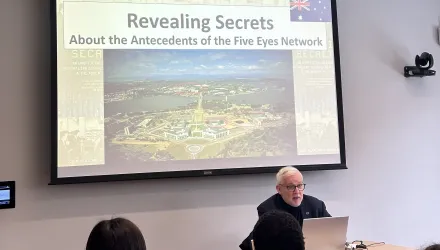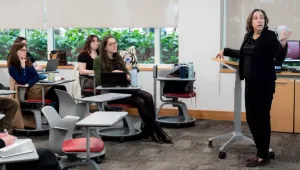Tinker, Tailor, Ally, Spy: The Origins and Evolution of Anglo-American Intelligence Relations
Speaker: Calder Walton, Ernest May Fellow in History and Policy, International Security Program
Stretching from the Second World War to the early Cold War, this seminar will examine the origins, evolution, stresses, and strains of British and U.S. intelligence relations—the closest intelligence relationship between two powers in history. Using a series of case studies, from signals intelligence-sharing agreements to atomic espionage and covert action during Britain's end of empire, it will explore the impact that British and U.S. intelligence had on post-war international relations. While collaborating together in unprecedented ways, it will be shown that, in some instances in the post-war years, British and U.S. intelligence worked at cross-purposes—and were also disastrously penetrated by their opponents, Soviet intelligence. This seminar will also offer some (arguably much-needed) policy-relevant historical lessons for governments and intelligence communities today.
Please join us! Coffee and tea provided. Everyone is welcome, but admittance will be on a first come–first served basis.




